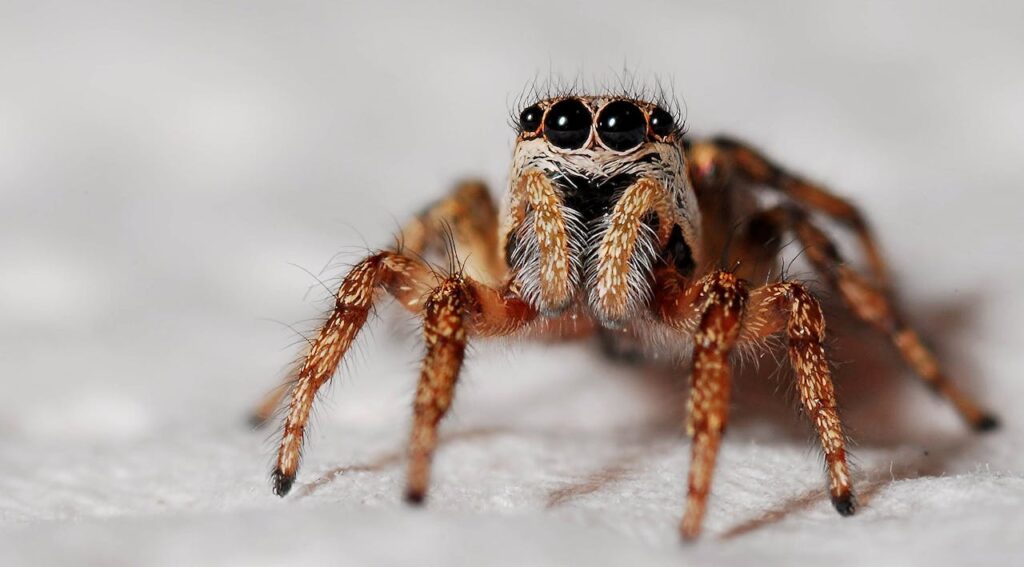Spiders are an inevitable part of the ecosystem, but when they move indoors, they can quickly become unwelcome guests. In regions like Willis, Texas, common spiders such as house spiders and jumping spiders are often harmless, but certain venomous species like the brown recluse or black widow can pose a more serious concern. While spotting the occasional web may not seem alarming, repeated sightings or spider egg sacs can indicate a larger issue. Fortunately, there are proactive ways to reduce spider activity in and around your home. Here’s a breakdown of expert-approved preventative measures every homeowner should know.

Block Their Pathways In
Spiders usually enter homes in search of prey, shelter, or mates. The best way to reduce their presence indoors is by limiting their ability to get inside. Sealing off access points can significantly lower the number of spiders you encounter.
- Inspect the foundation, siding, and windows for cracks or holes, and seal any gaps using weather-resistant caulk.
- Install door sweeps and repair or replace torn window screens.
- Ensure attic and crawl space vents are secured with fine mesh screening.
- Use silicone caulk around utility entry points such as plumbing or electrical lines.
- Keep garage doors closed when not in use, especially during cooler months when spiders seek warmth.
Many of the same access points used by insects like cockroaches or ants can also attract spiders, since they tend to follow their food source indoors. Blocking these pathways is a simple yet highly effective first step.
Maintain a Clutter-Free Environment
Spiders prefer quiet, undisturbed areas where they can build webs or burrow. Indoor clutter provides ample hiding spaces that allow them to go undetected for long periods. Regular organization and cleaning routines can make your home far less inviting.
- Reduce clutter in closets, basements, attics, and garages.
- Keep storage boxes sealed and elevated off the floor.
- Dust corners, ceilings, and window frames to remove webs and egg sacs.
- Vacuum regularly, especially along baseboards and under furniture.
This is especially critical in areas that aren’t used often, like storage rooms or spare bedrooms. Minimizing hiding spots makes it easier to detect activity early and respond accordingly.
Outdoor Clean-Up to Deter Activity
Much of spider prevention starts outside. A tidy exterior helps reduce the chance of spiders settling near your foundation or finding their way indoors. The goal is to make the area around your home as inhospitable to them as possible.
- Trim vegetation, shrubs, and tree branches away from the home’s exterior walls.
- Store firewood, mulch, or compost piles at least 20 feet from the house.
- Remove leaf litter, grass clippings, and debris that can harbor insects and provide cover for spiders.
- Minimize exterior lighting or switch to yellow bulbs, which attract fewer insects and reduce spider prey.
- Sweep away webs from outdoor corners, eaves, and windows regularly.
Eliminating insect prey is also key, as spiders tend to follow where food is abundant. Keeping the perimeter of your home pest-free not only helps with spider control but also contributes to better overall pest prevention.
Know What You’re Dealing With
It’s important to understand the types of spiders commonly found in your area. Some are harmless and serve as natural pest control by eating other insects. Others, however, carry venom that can be harmful to humans and pets.
In Willis and the surrounding areas, residents should be cautious of species such as the black widow and brown recluse. These spiders tend to hide in dark, dry spaces like sheds, attics, or stored boxes. Being able to identify venomous spiders is key to knowing when the risk is higher and when to seek professional support.
Keep in mind that even non-venomous spiders can become a nuisance when populations grow unchecked. If you are noticing webs appearing daily or spotting spiders during the day, there may be an infestation already underway.
Strengthen Long-Term Protection
Preventative efforts are most successful when combined with consistent, long-term strategies. The idea is not just to remove spiders, but to disrupt their habitat and deter them from returning.
- Use dehumidifiers in damp areas like basements or laundry rooms to reduce moisture.
- Apply insecticide dust in wall voids or behind baseboards if activity persists.
- Store pet food in sealed containers and clean feeding areas to avoid attracting insects.
- Address any other pest activity that may be providing a food source for spiders.
- Schedule regular inspections to detect early signs before an infestation takes hold.
Incorporating long-term spider strategies can help keep your home spider-free throughout the year. Routine maintenance and seasonal awareness go a long way in keeping populations under control.
Make Your Home Less Inviting to Spiders
If spiders have become more than an occasional visitor in your home, it might be time to take action. Preventative measures are most effective when consistently applied, and professional insight can help ensure nothing is overlooked.For expert help in securing your home against spiders and other pests, contact Fisher’s Pest Control and take the first step toward a cleaner, safer, and spider-free living space.





